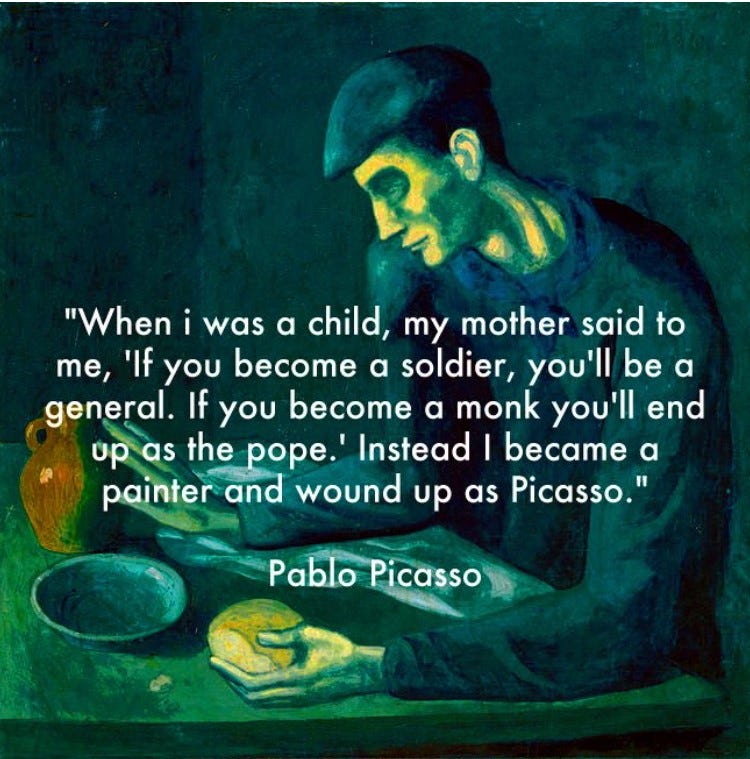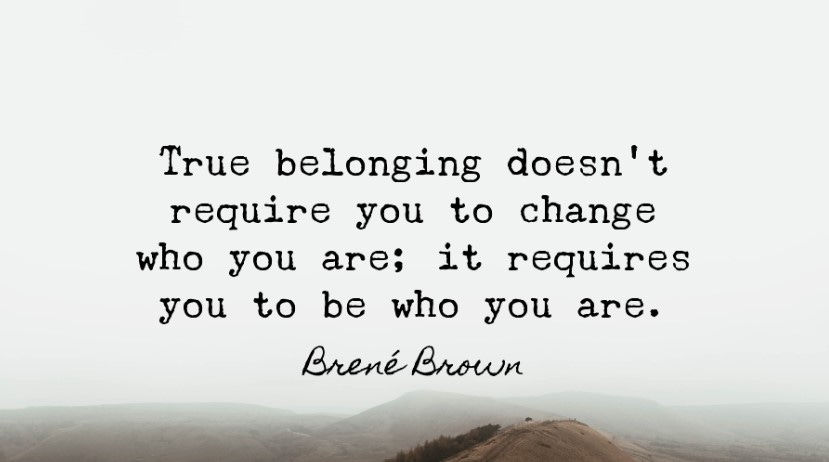After my whole post yesterday about following what brings us pleasure, I went ahead and forced myself to continue to sort through the girls clothes that I had, in a minimalist fit, strewn about in piles to be sorted and minimized and which now completely obstructed my living room floor. Did I want to sort through these piles? No. I was tired, I had a headache, and what I really wanted was a nap. But I have a rather strong voice in my head that said “If you try to take a nap instead of doing this thing that you started yesterday and didn’t finish, I will make sure you regret it.” So I did the thing (kind of…for a little bit). As I was sorting through clothes, trying to get my executive function to work so that this simple task didn’t feel so overwhelming and panic inducing (the hurt of letting go of clothes that are torn or too small but still hold memories, the horrifying realization that I now need to go shopping for new clothes for my kids, etc), all I could think was “I am not cut out for this kind of work.” “I do not have the necessary skills (or desire) to manage a household. ” Which of course, resulted in the inevitable thought “I am a bad wife and mom.”
Then I remembered the saying “everybody’s best is different.”—which I had always interpreted as “Some people are better than others, so you just need to live with the fact that there will always be someone better than you and someone worse than you. We live in a hierarchy of ‘bestness.’” But this time I thought “What if this saying isn’t about HOW capable we are, but about WHAT our capabilities are?”
There is this quote that is attributed to Einstein (even though he apparently never said it) that goes like this: “Everybody is a genius, but if you judge a fish by it’s ability to climb a tree, it will spend its whole life believing that it was stupid.”
At this point in my thought bender, my headache was getting pretty bad, so I climbed into bed, rested for a bit, then hopped on social media where I saw some comment someone made about having “aphantasia” (the inability to form pictures in your mind) which reminded me that I’d been meaning to figure out if I have aphantasia, which led me to this article that explains we actually have several different ways of imagining things. I’m going to pull this straight from the article:
What we know about imagination is that it exists on a spectrum. Like the rest of human intelligence, our capacity to imagine is unique to each of us. The organisation Imagination Spectrum identifies at least six different capacities of imagination, and we all have a unique blend of each. They are:
Visual Imagination – The ability to imagine pictures in your mind without actually seeing them with your eyes.
Auditory Imagination – The ability to imagine sound in your mind without actually hearing with your ears.
Olfactory Imagination – The ability to imagine smells in your mind without actually smelling with your nose.
Gustatory Imagination – The ability to imagine tastes in your mind without actually tasting with your tongue.
Tactile Imagination – The ability to imagine sensations in your mind without actually feeling with your body.
Motor Imagination – The ability to imagine movements in your mind without actually moving with your body.
People with aphantasia lack or have decreased capacity for the first, Visual Imagination, but not necessarily the other five. It is currently estimated that 2-5% of the population have aphantasia, and that about 26% of these people have “total aphantasia” or aphantasia that is multisensory, that affects all of their sensory imaginations.
I decided to focus on my imagination and try to sense each of the six capacities in my mind. As far as I can tell without some kind of official test, I have strong auditory and tactile imagination, but the other 4 are hard for me to experience with any kind of detail at all. I made my husband participate in my imagination test and we discovered that he has a very strong visual and tactile imagination, but not a very strong auditory imagination. He says thinks primarily in pictures while I think primarily in words (like hearing a voice in my head).
This felt like a MAJOR discovery to me, because it seemed to explain why our skill sets are so different. Elliot is a genius when it comes to operating in the physical world. His sense of direction is phenomenal (and he explained to me that he actually can see like geography and shit in his head and has a mental understanding of how things are laid out in relation to each other…which is honestly mind boggling to me), he seems to have an innate understanding of the way things work and I’m convinced could fix or build just about anything he wanted; also, his driving skills are unmatched. However, school was tricky for him. He doesn’t have a lot of interest in things that can’t be experienced in a tactile or visual way—so reading or discussing ideas and theories, and music aren’t really his strengths.
I, as you may have guessed, am almost exactly his opposite.
Guys….our brains are so different, and yet we are constantly expecting each other to care about the things we care about, and to think the way we think, and to have a similar set of skills as the person next to us—but we are so freaking different! Isn’t that incredible? Isn’t that something to celebrate?! Rather than constantly trying to force each other to operate within OUR reality and validate OUR perspective of the world, what if we celebrated the fact that no two people have the same perspective? What if we looked at each other as windows into another way of looking at the world rather than judging ourselves and each other based on our limited frame of reference?
We live in a world where around 8 billion people are trying to fit into (or trying to force others to fit into) one box (one “right way,” one version of success), but what if we had 8 billion people just fully embracing who they already ARE and becoming the best version of THAT? What if we dropped the things we don’t love and aren’t good at and stopped wasting energy judging ourselves for that, and instead we valued our own unique skills and gifts?
In my post about wanting to be a cow, I talked about an internal part I have that just wants to rest and do nothing all the time. She wanted to live in the Hundred Acre Wood, so I took her there. A week later I checked in with her, and she was blissfully happy. She told me that there was no pressure to be anything other than what she was. Rabbit was loved because he was Rabbit, and his love of his garden and for hard work, was just the way he was. Eeyore was loved because he was Eeyore—no one tried to “fix” him by getting him to be happy all of the time. Piglet was scared and loved. Pooh Bear was silly and loved. And my little inner child was a sleepy girl that liked to be alone doing nothing a lot and she found just as much acceptance and love for that as anyone in the Hundred Acre Wood. She felt like she belonged—exactly as she was.
At dinner last night, I told my husband that I think my depression largely stems from the fact that I left things that I was good at (going to school, teaching music, being a spiritual leader and meaning maker at church) for things that I am not good at (cleaning house, tracking finances, cooking, and a bunch of other detail-y, executive function type things.)
I said, “I’ve been beating myself up for not being able to get to the top of a tree. But I’m not a bird mom. I’m a fish mom.”
At this point, my ever-observant 7 year old spoke up and said, “No, you’re neither of those.”
I looked at her questioningly and she met my eyes with a knowing smile. “You’re a Dragon Mom.”
I’m a dragon mom? If that’s the case…maybe I should stop trying to be a bird.







Apparently my new ritual is to comment on every post of yours, "BIG SAME." I also think primarily in words! And Freddy's brain is so, so very different from mine. We're at a point where we mostly can joke about it and make use of each other's strengths and complement each other's weaknesses. But woof, it took a while to get there. I love this discovery you had! Also, you're totally a dragon.